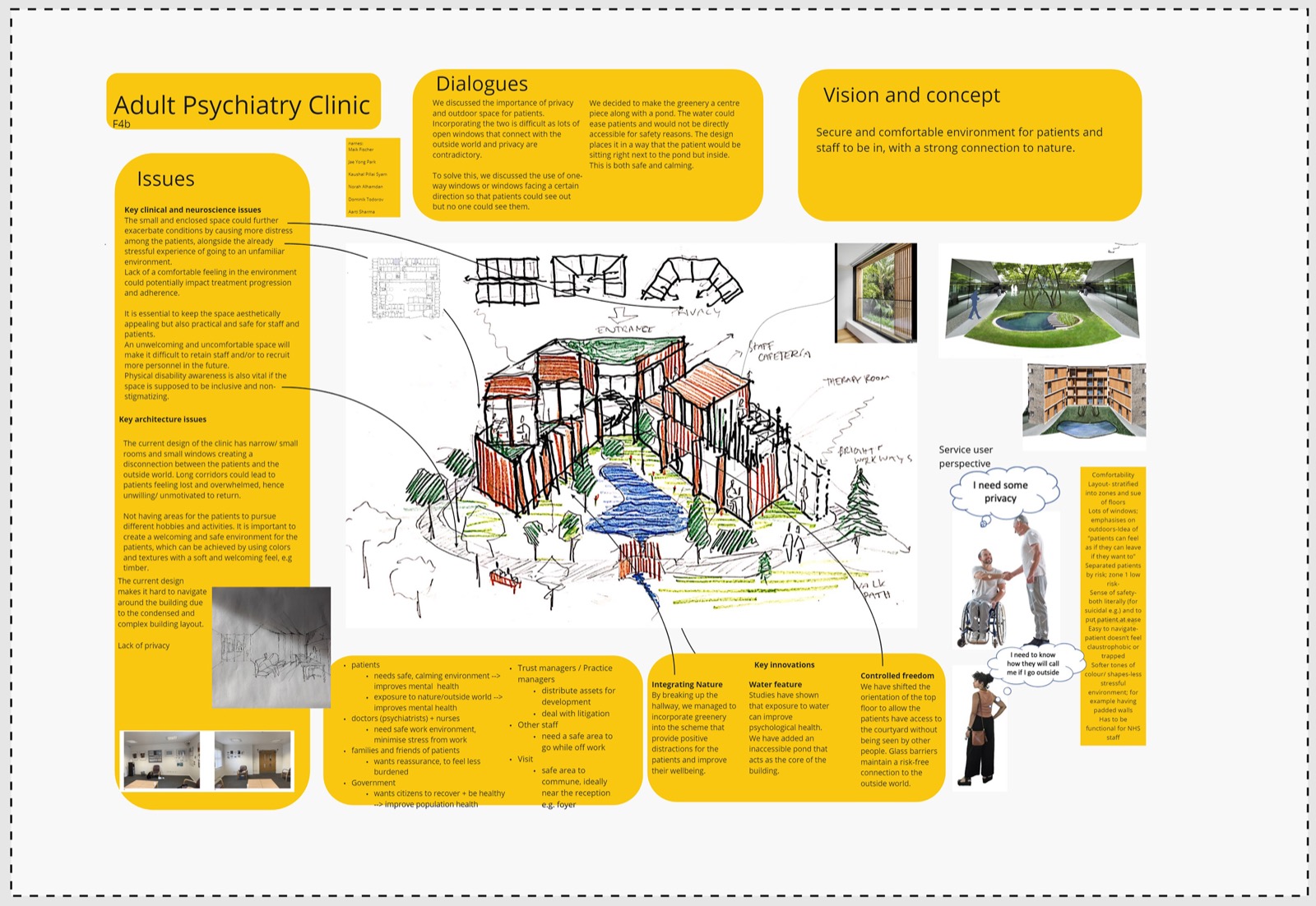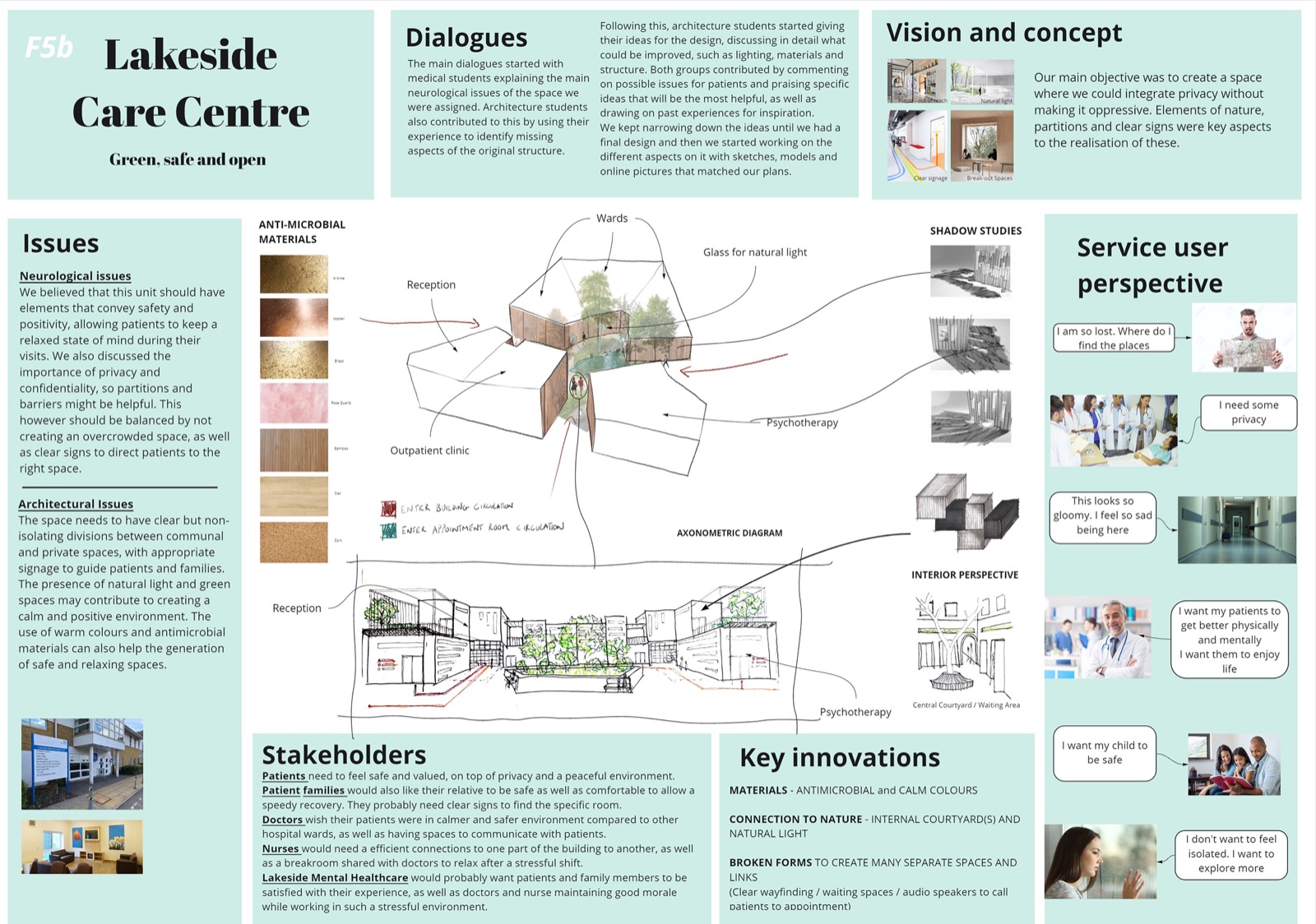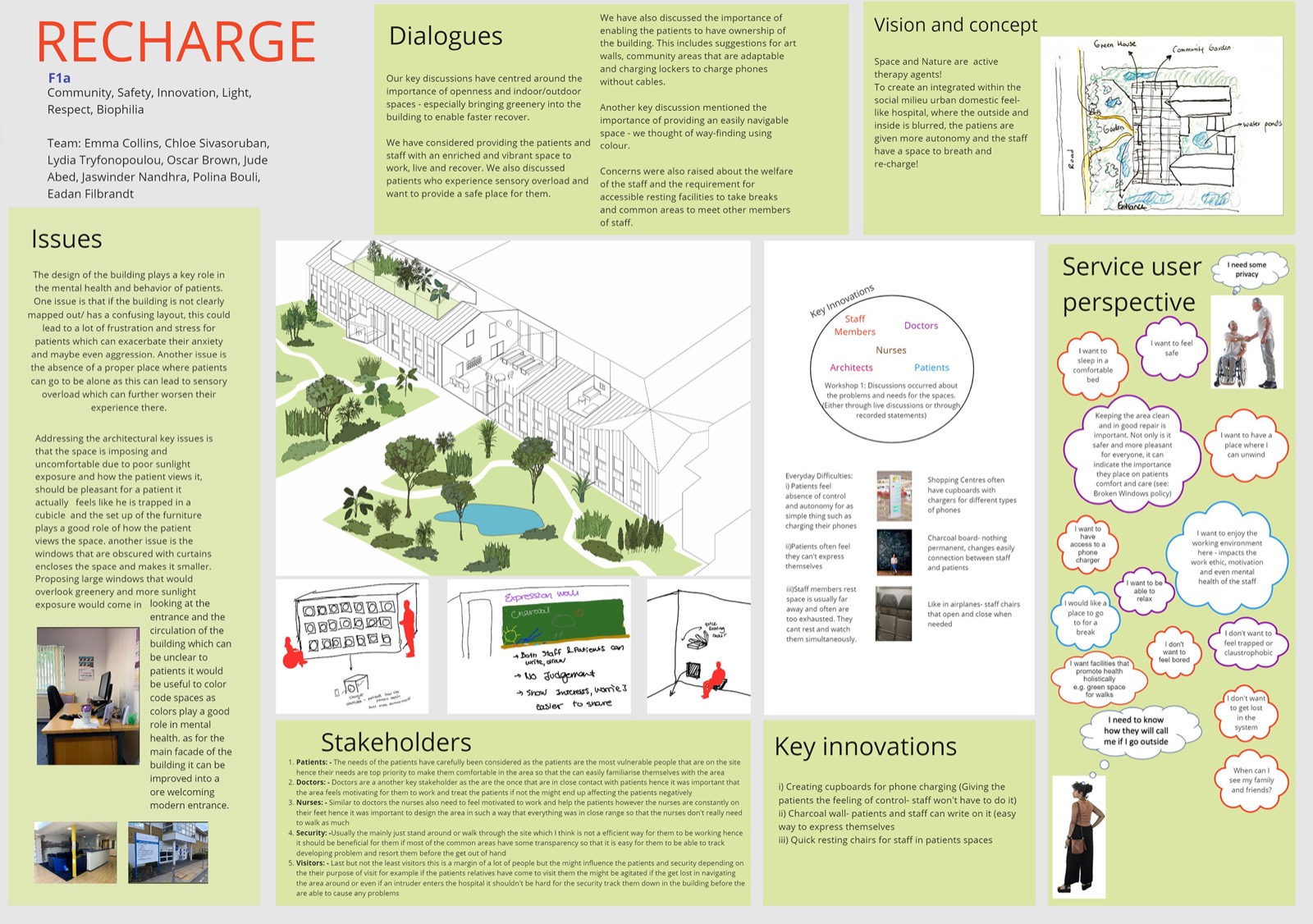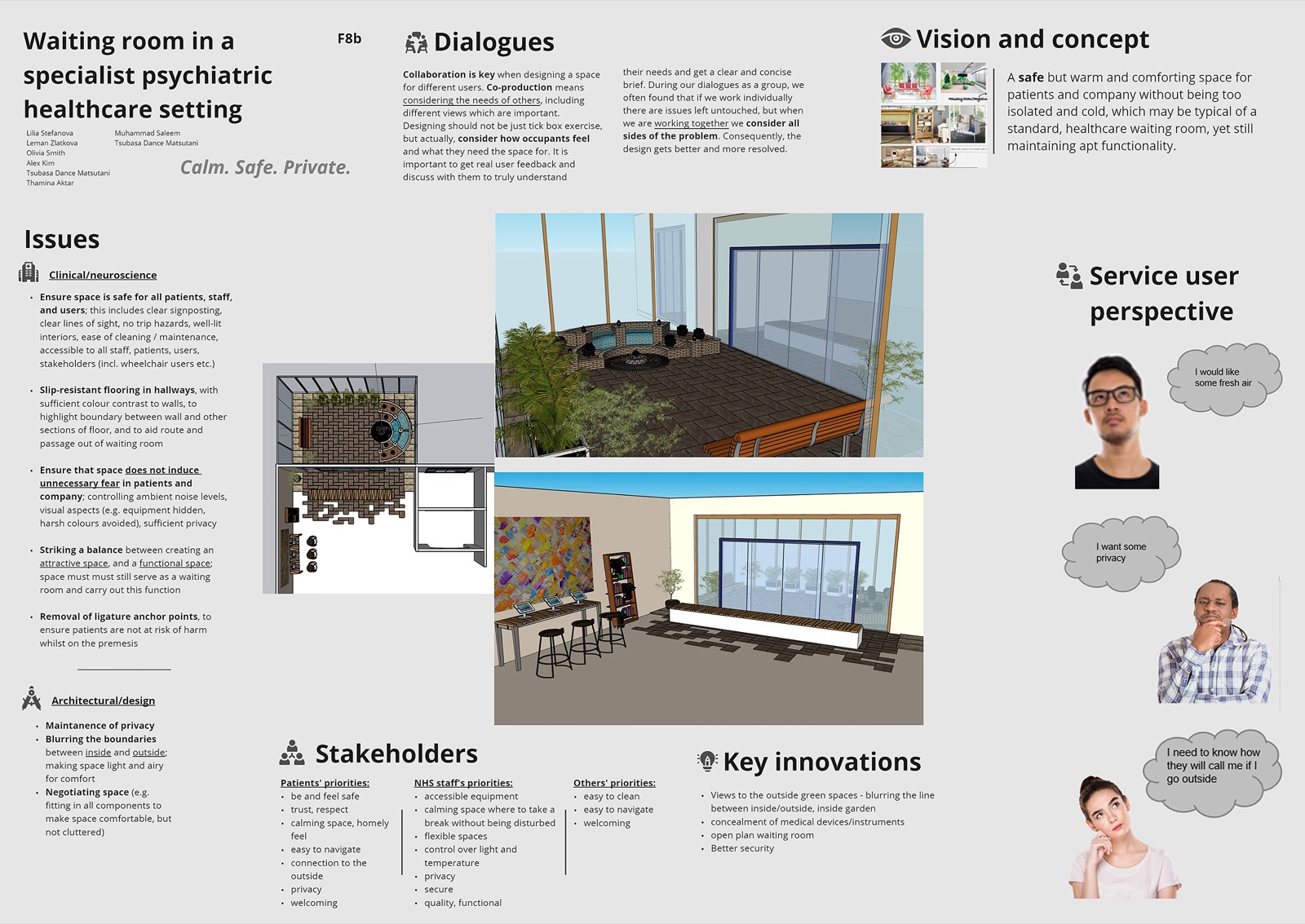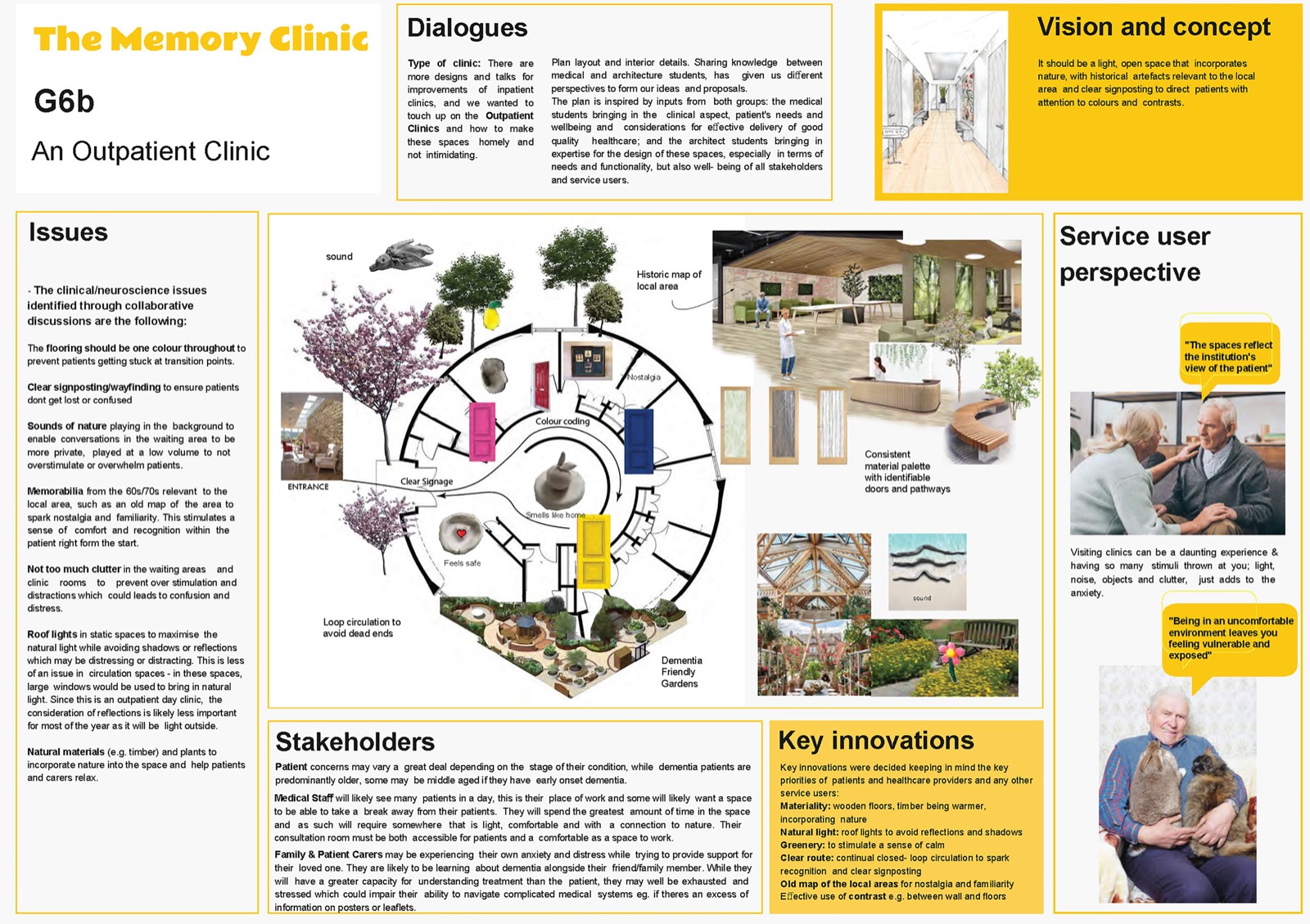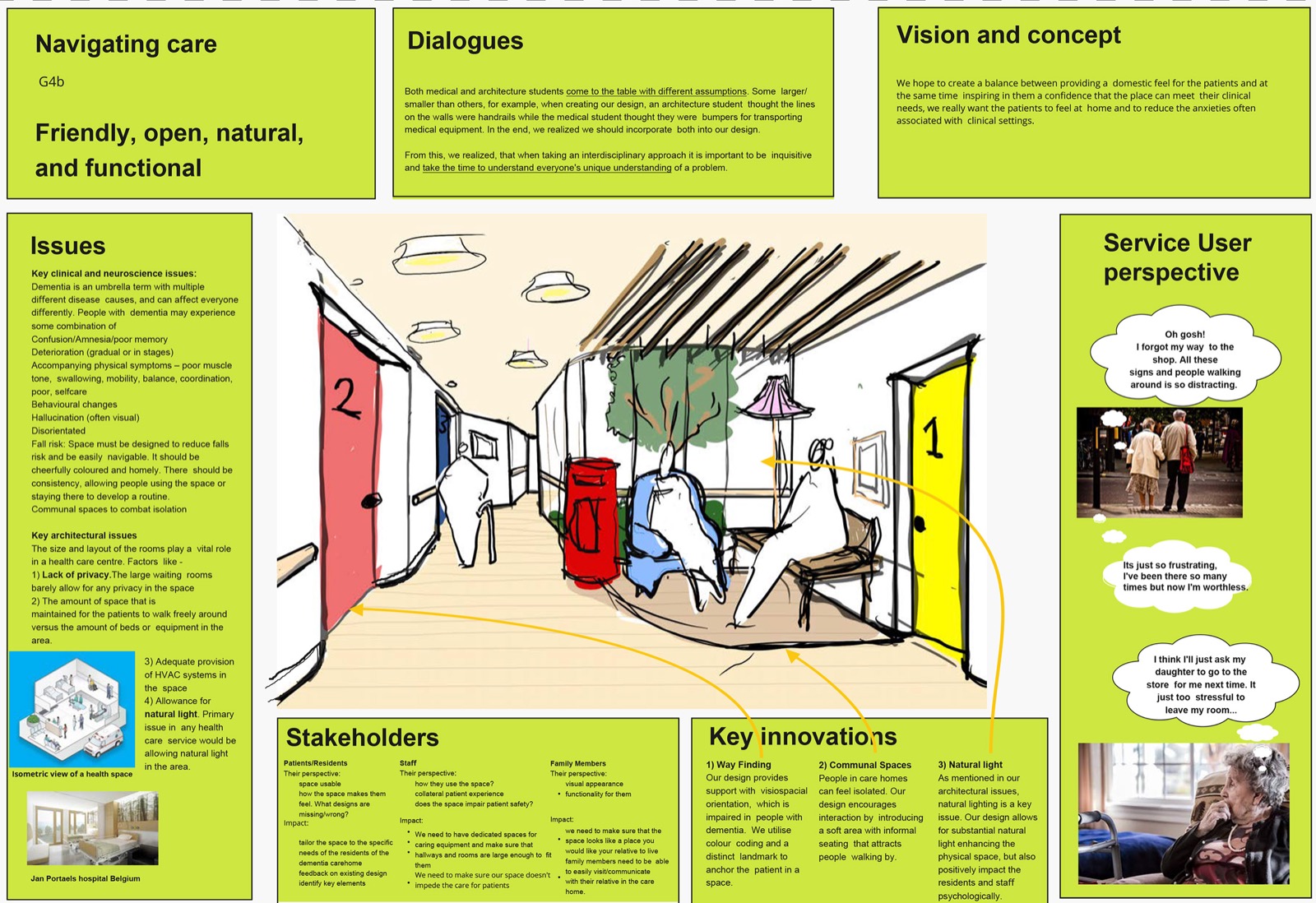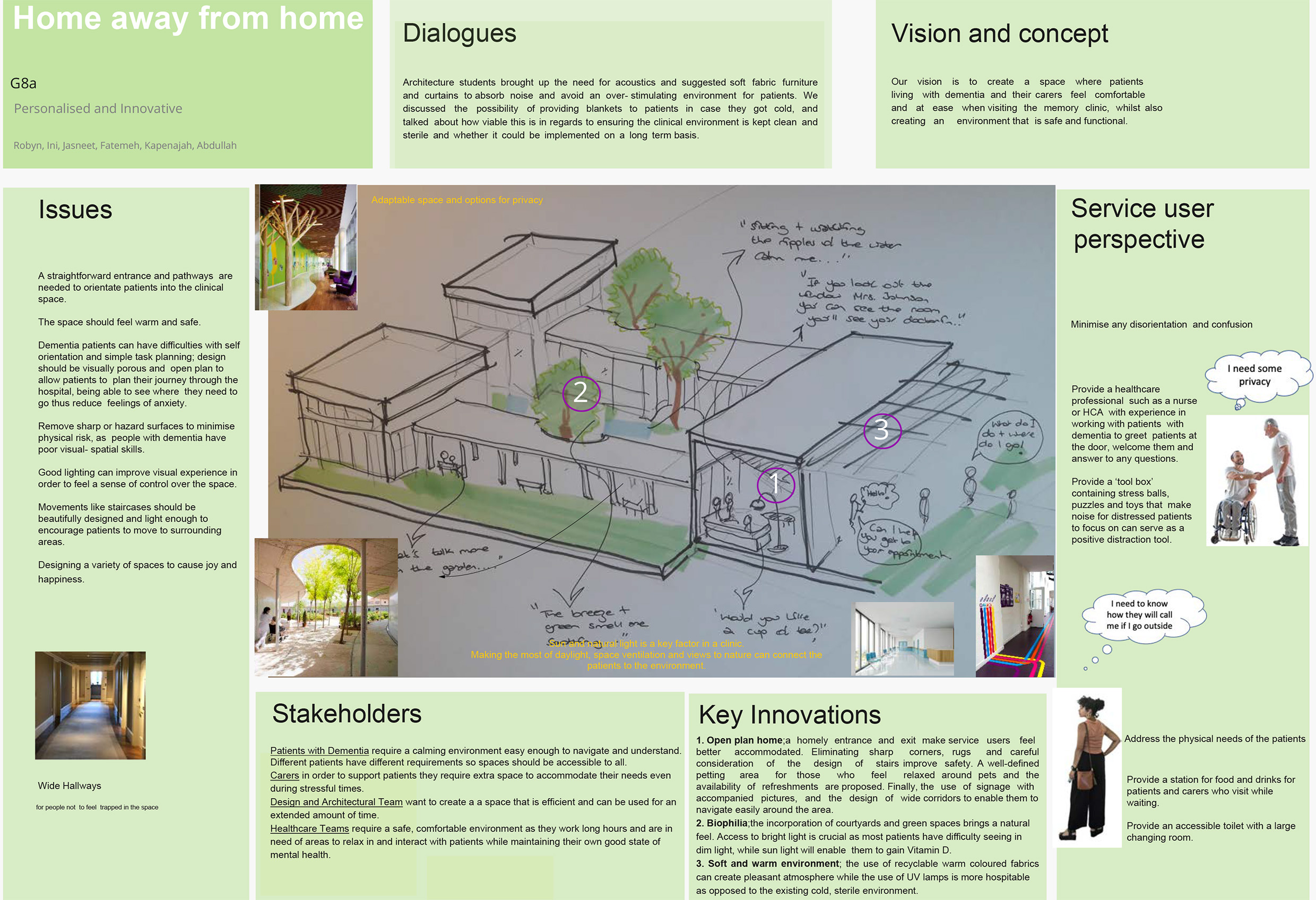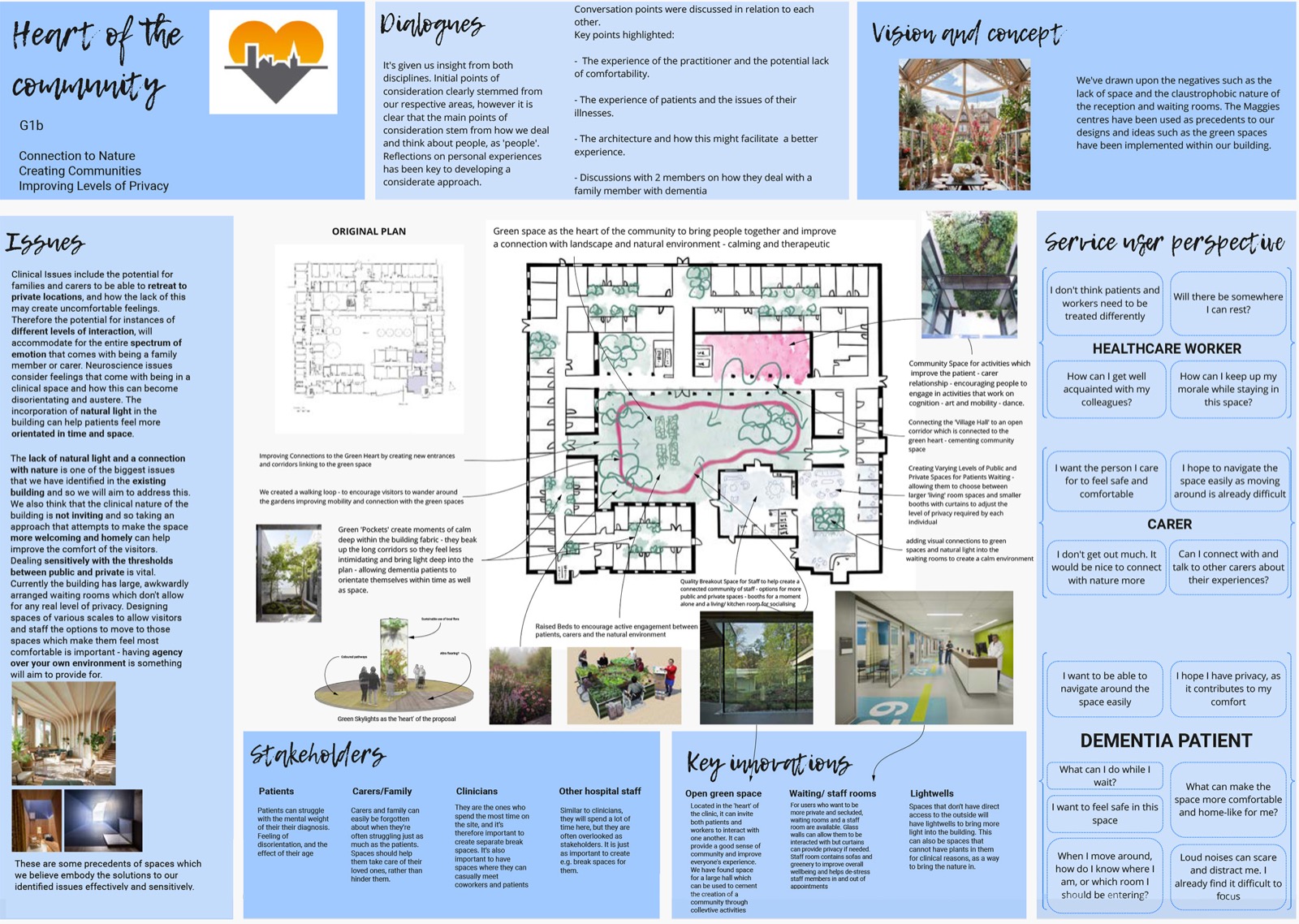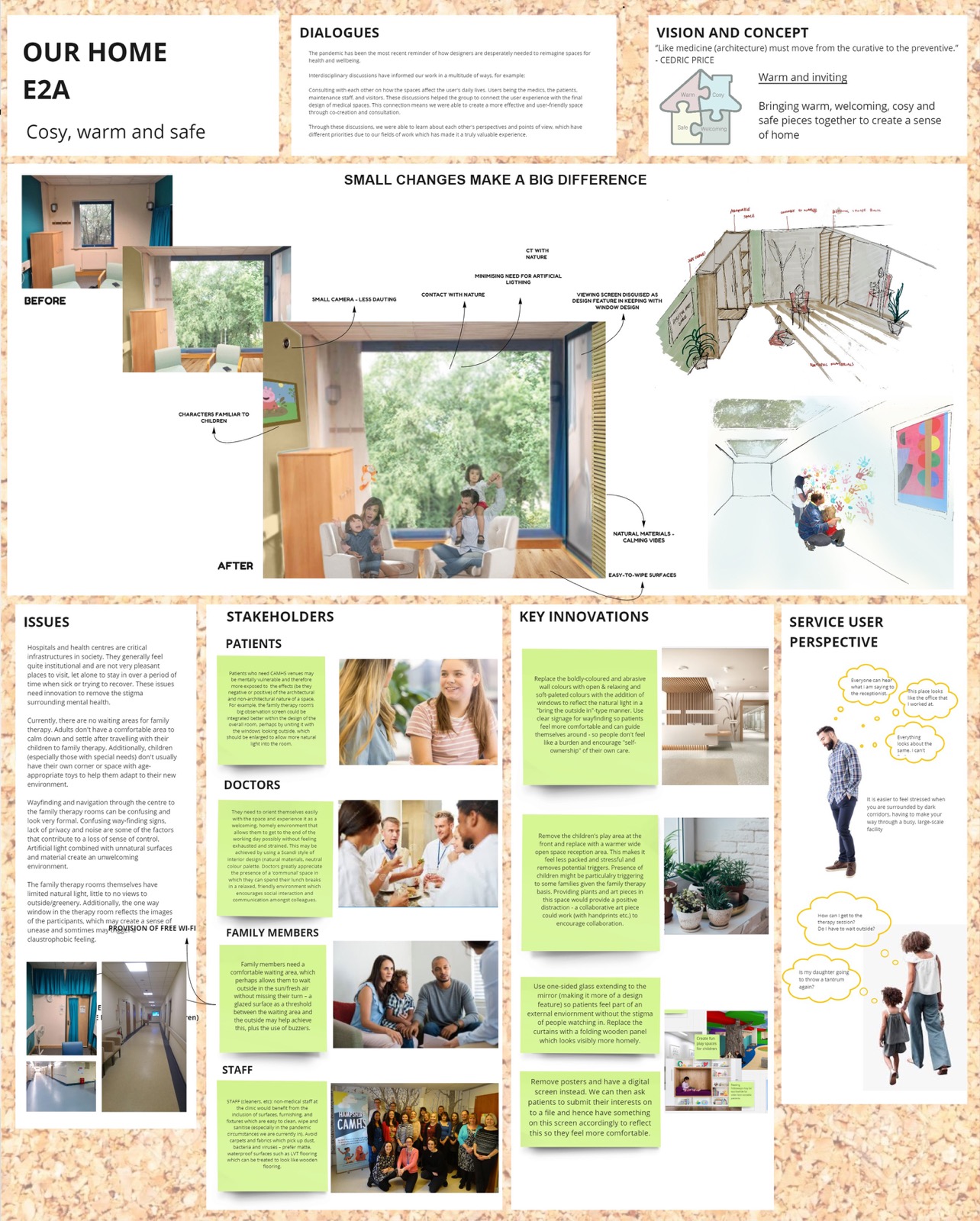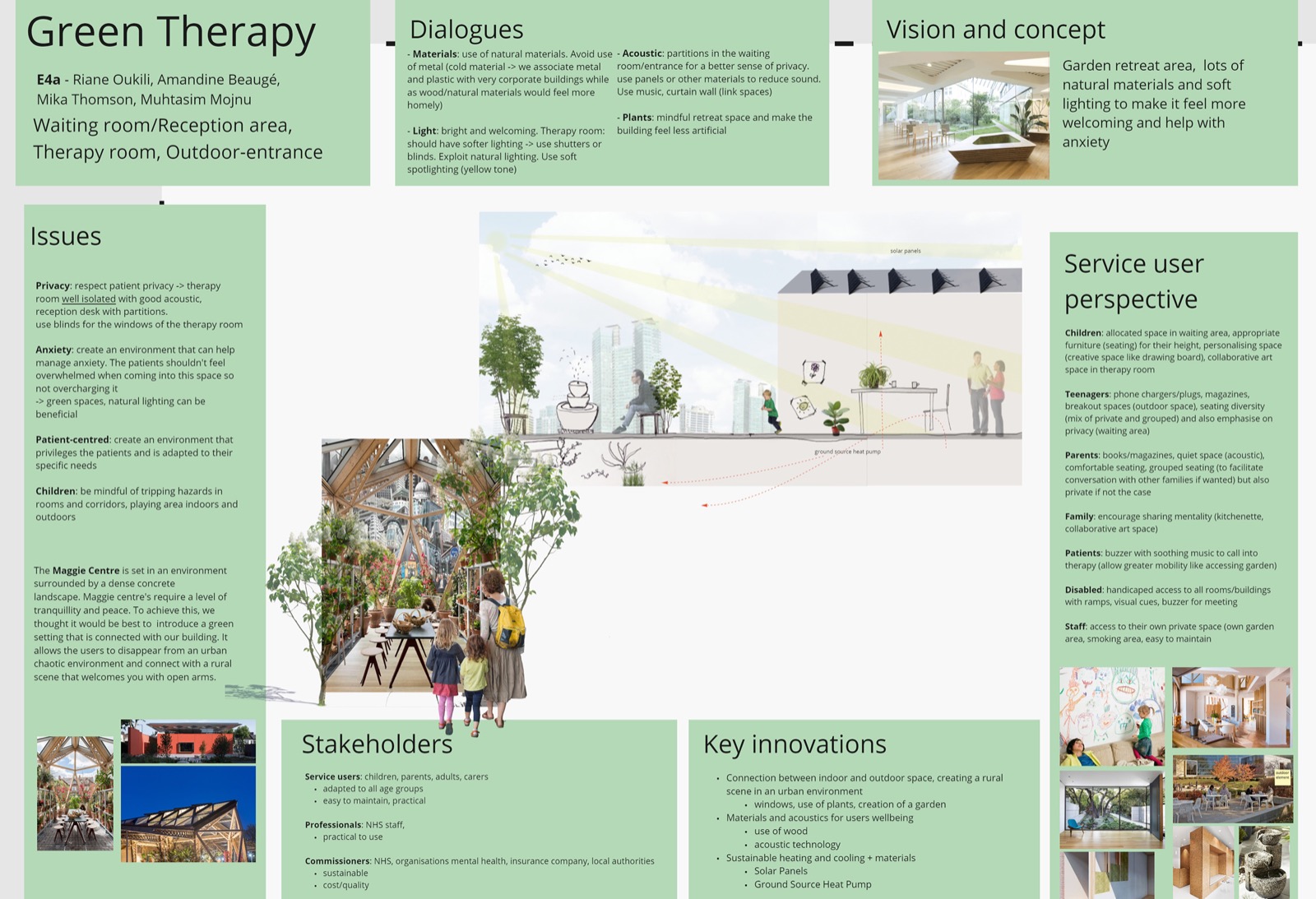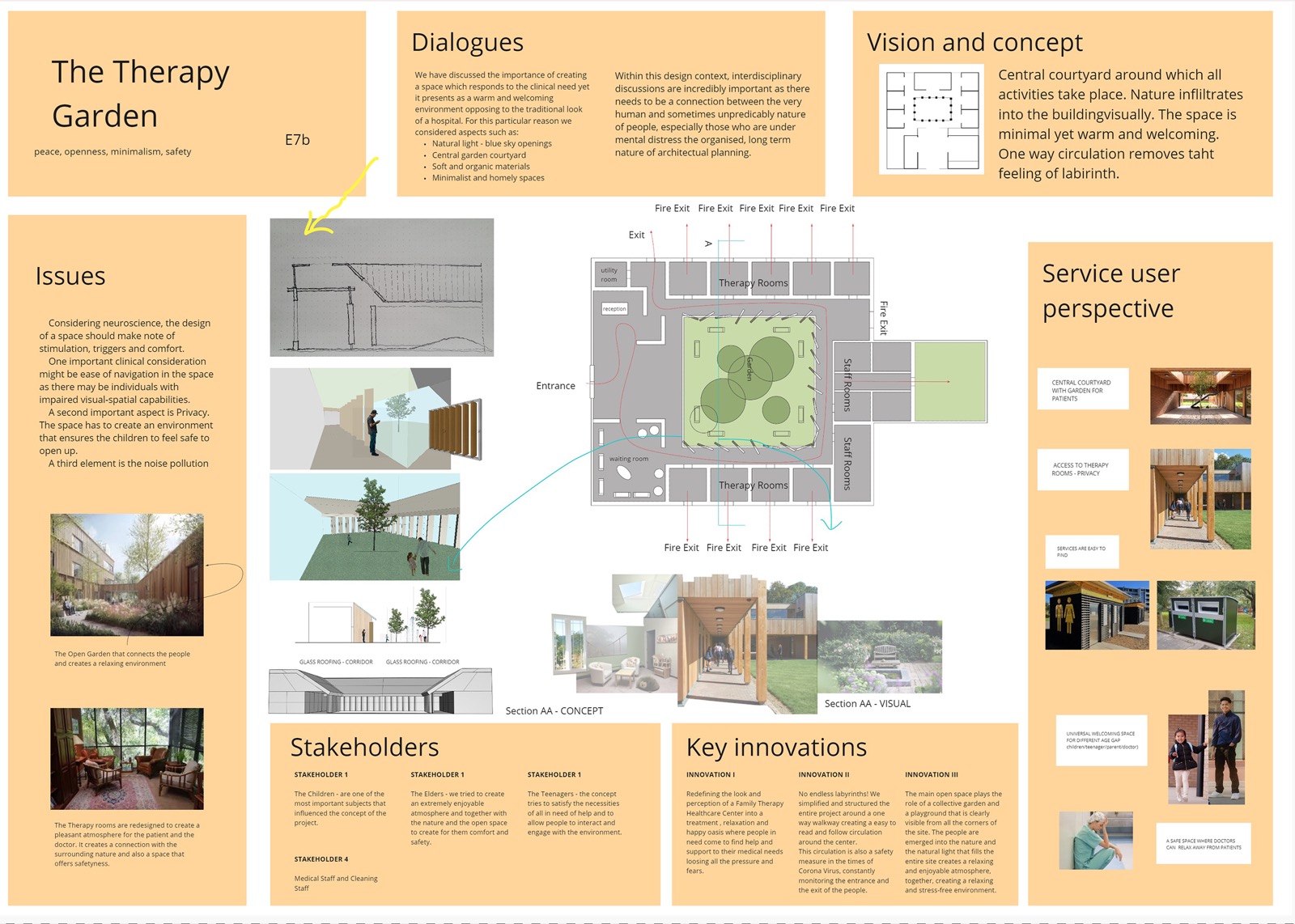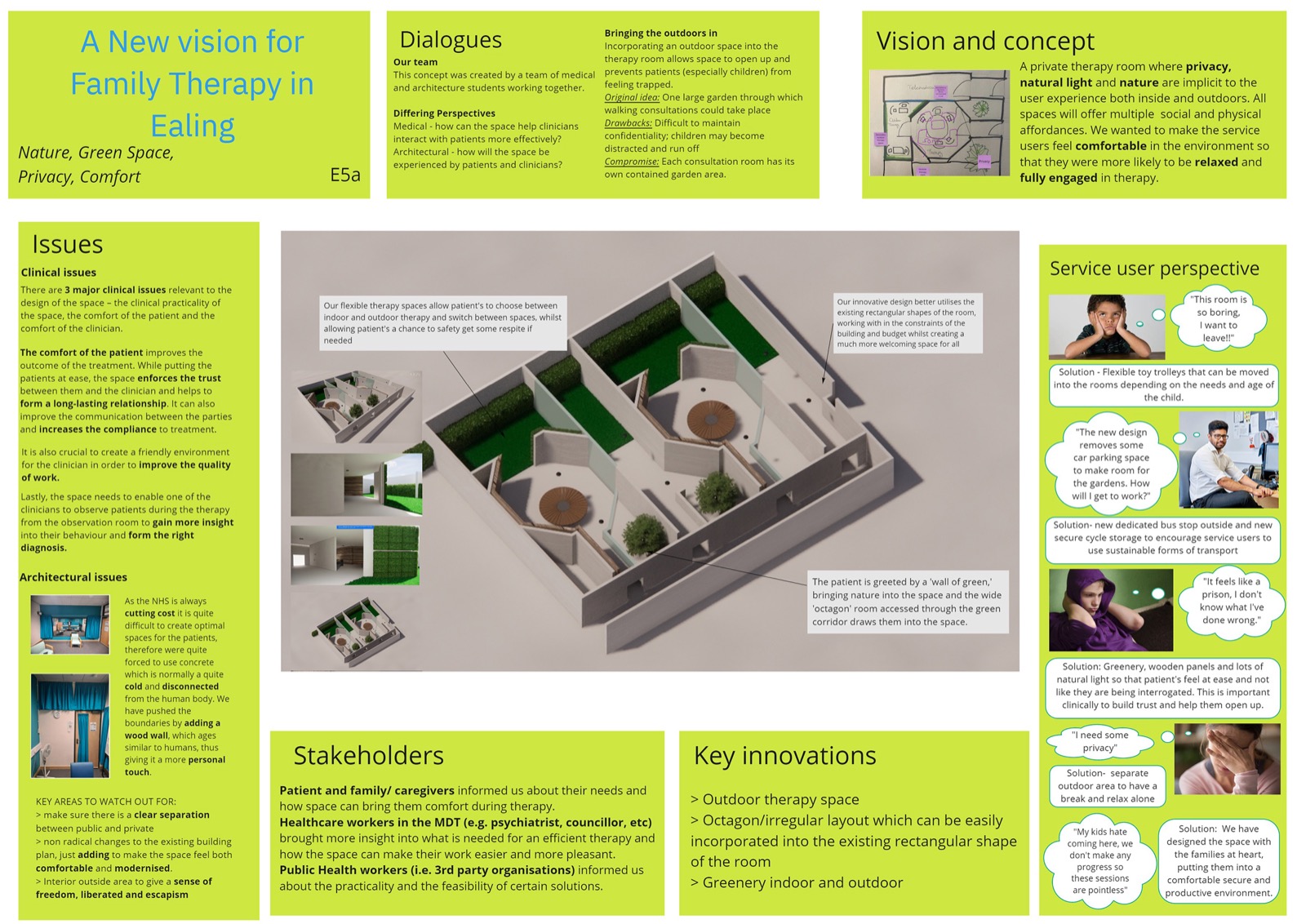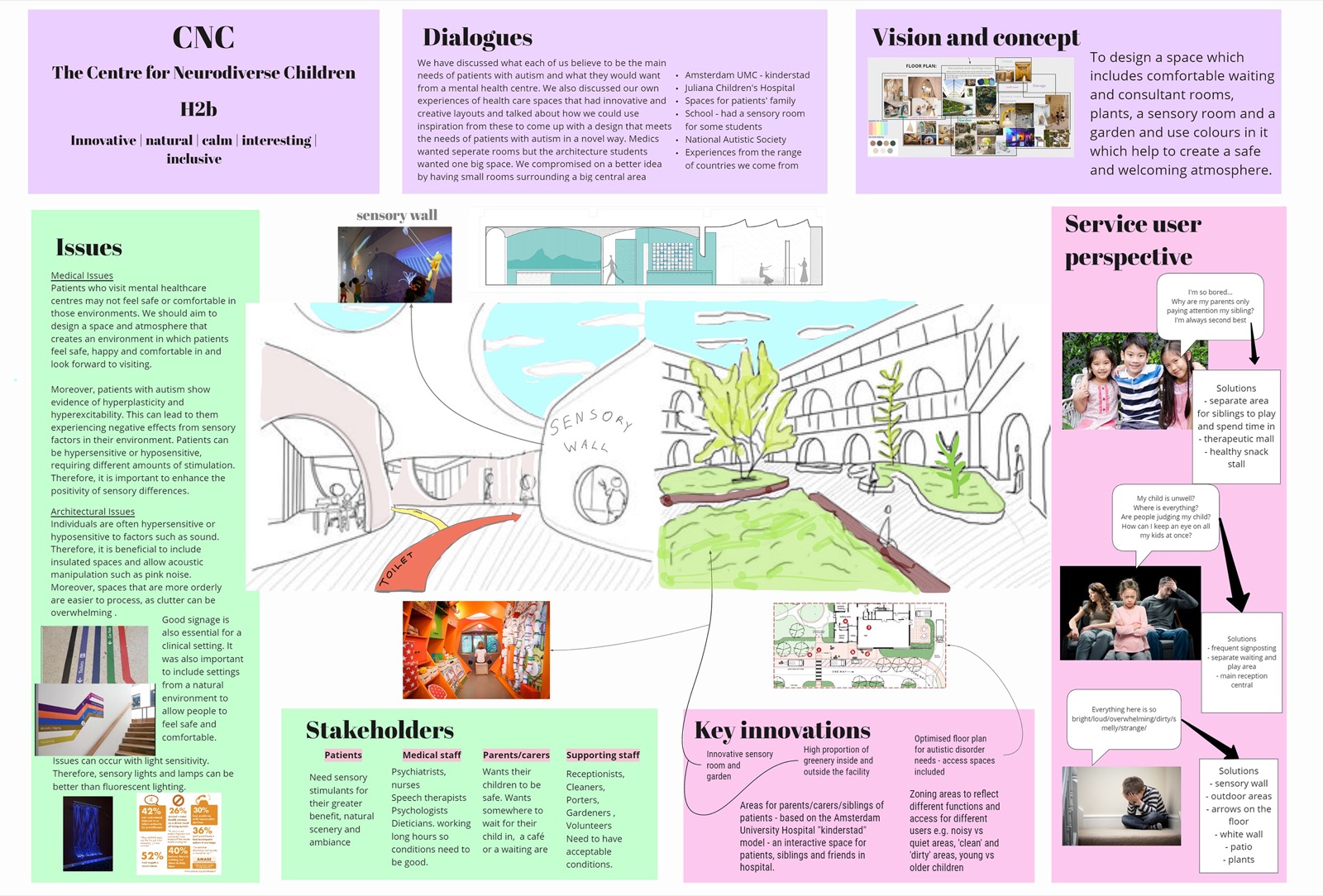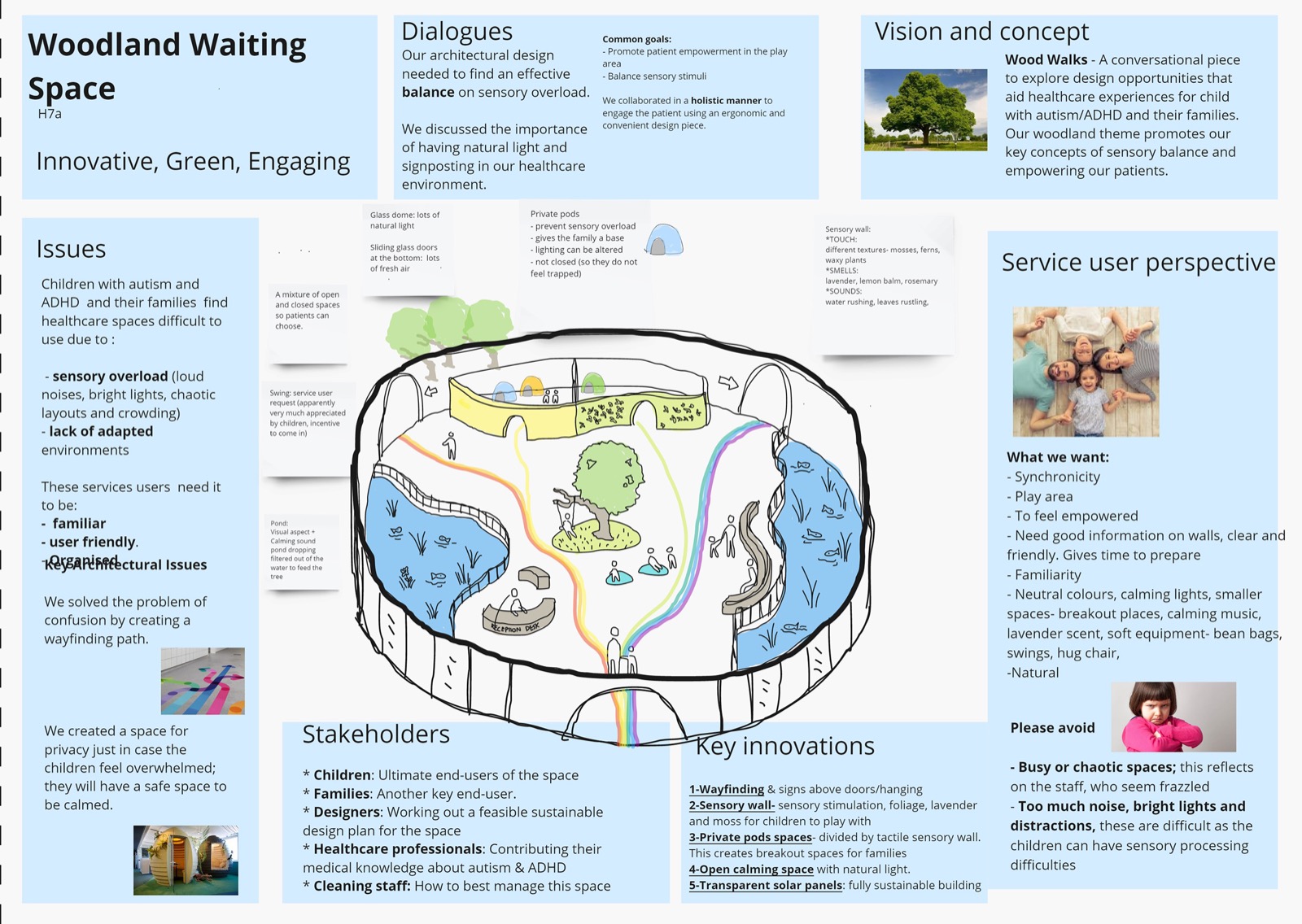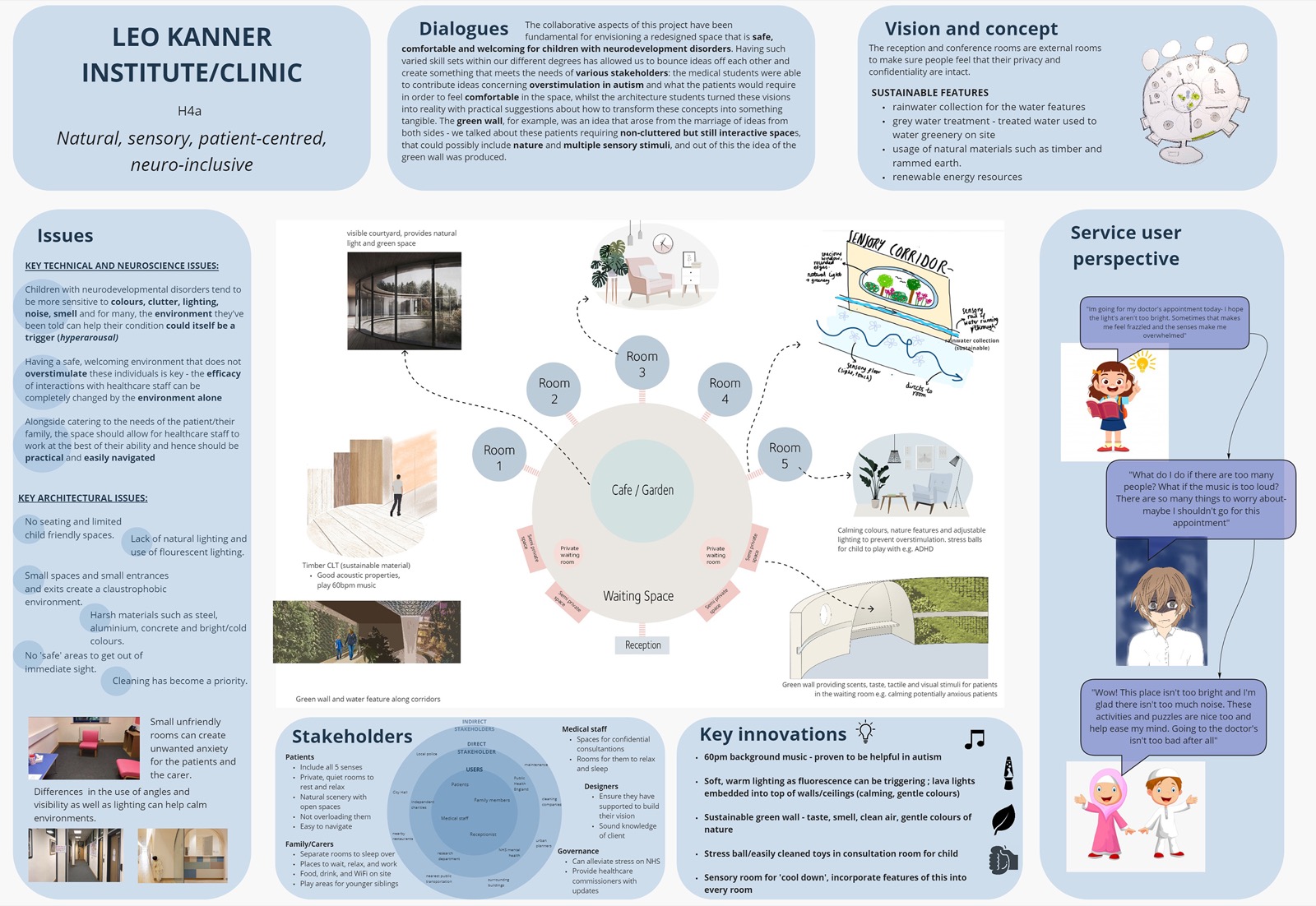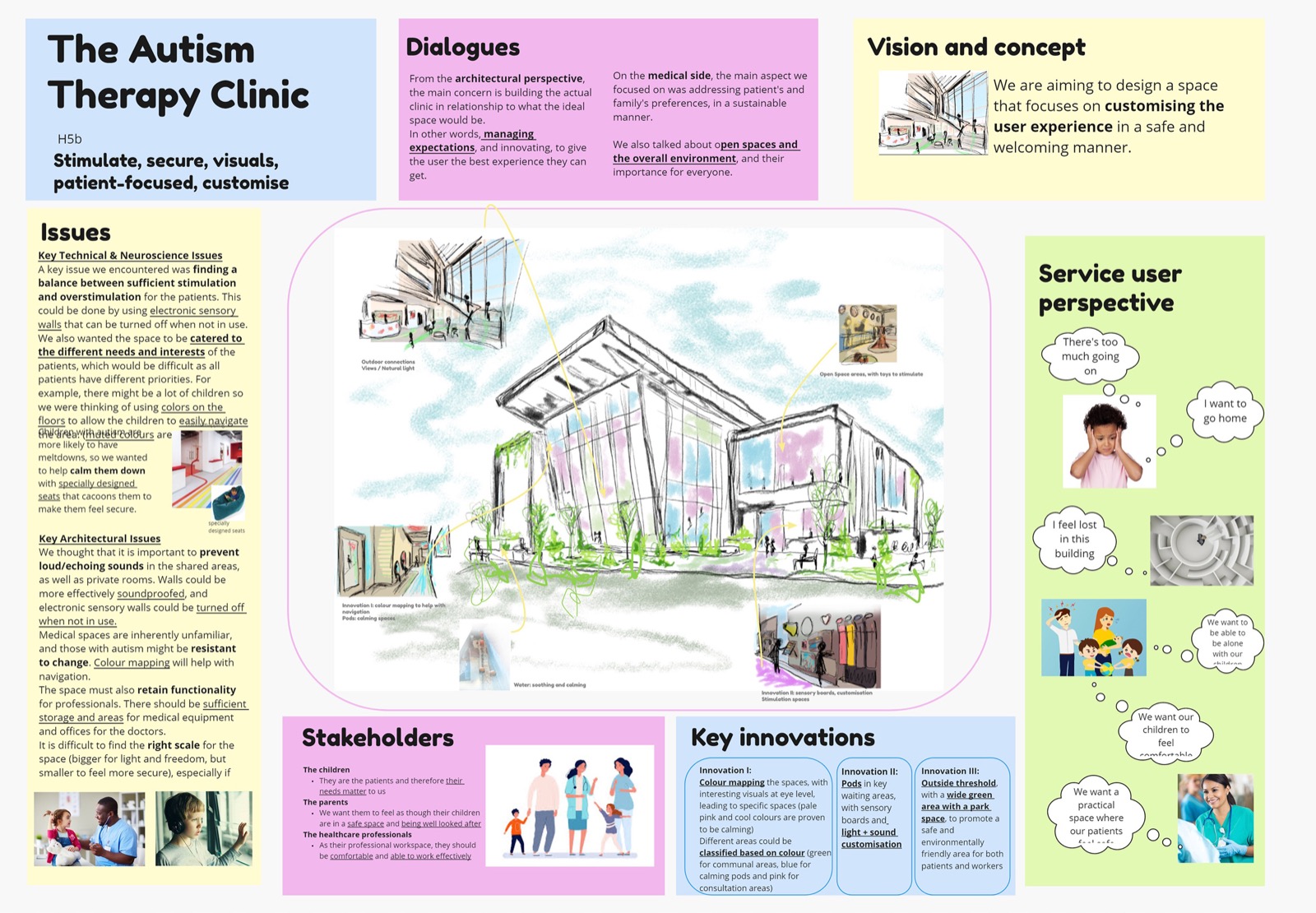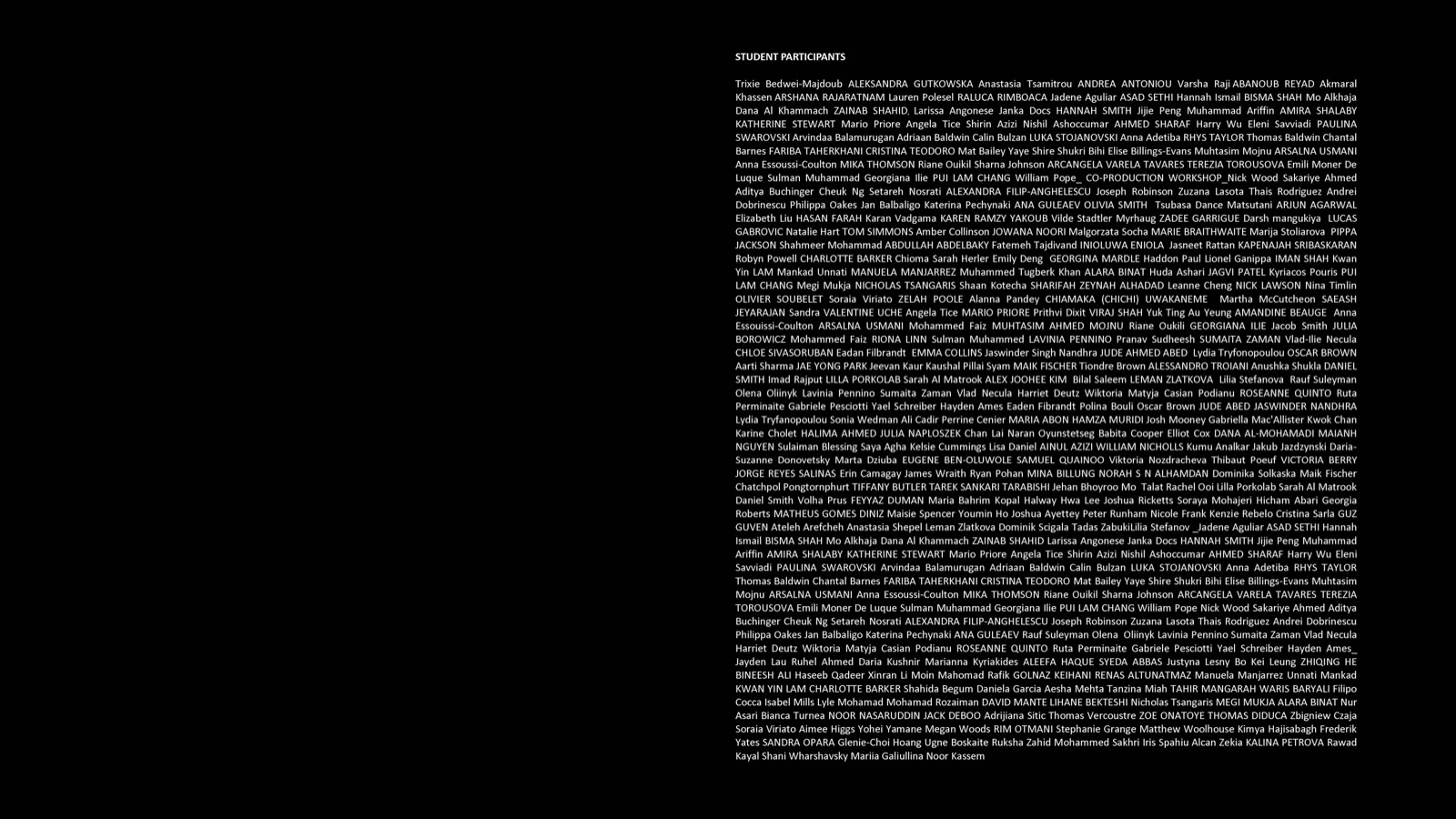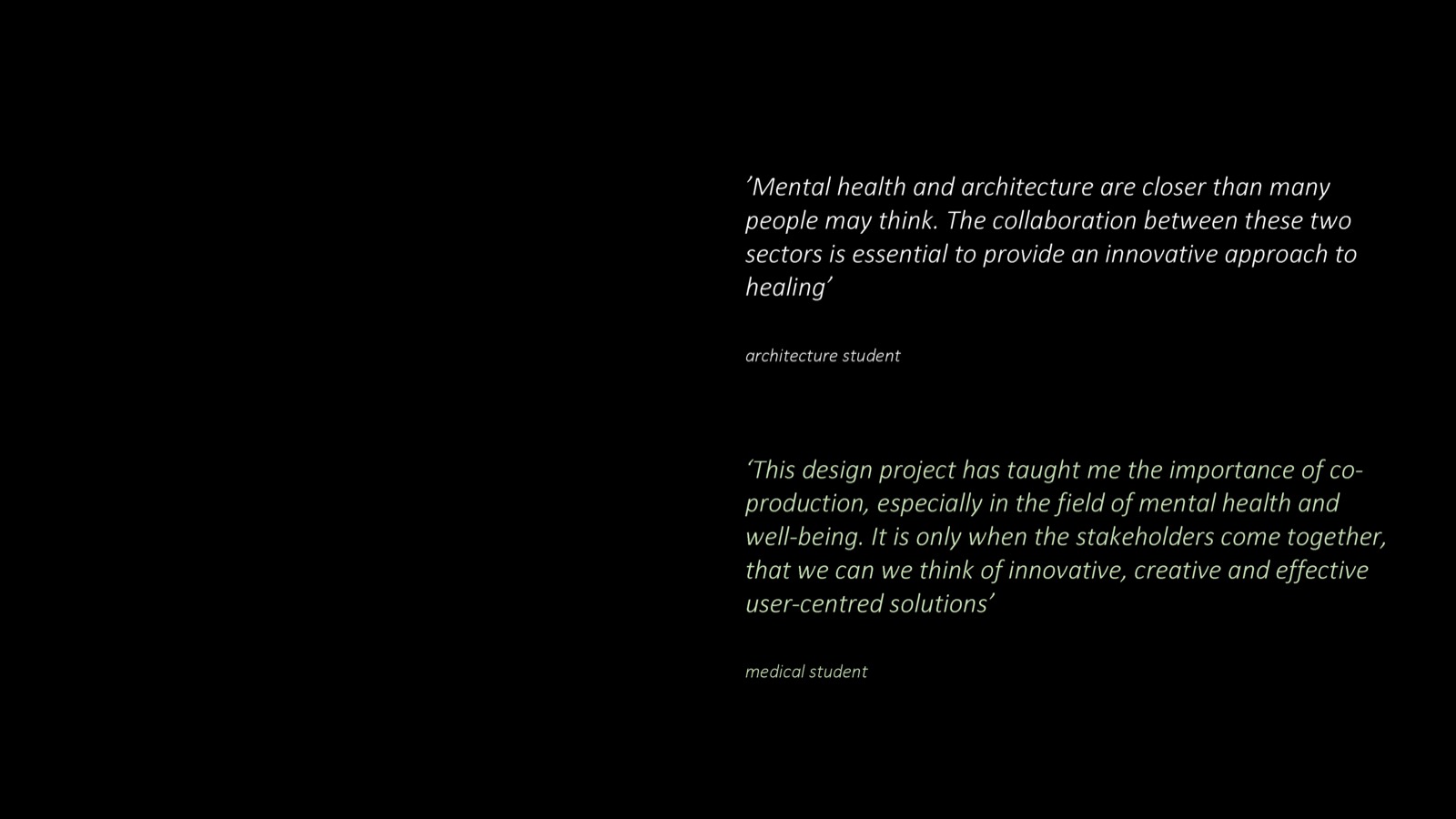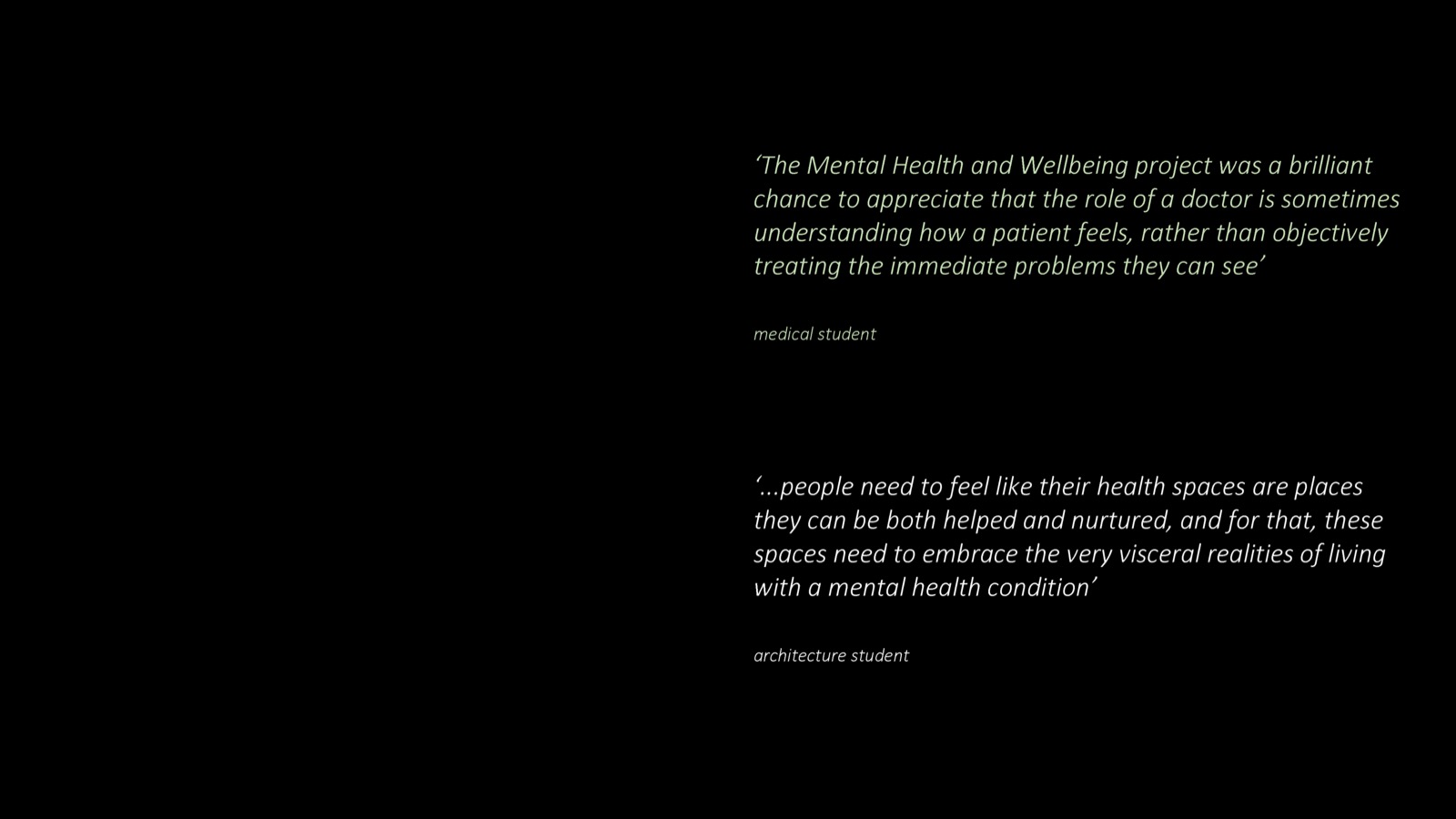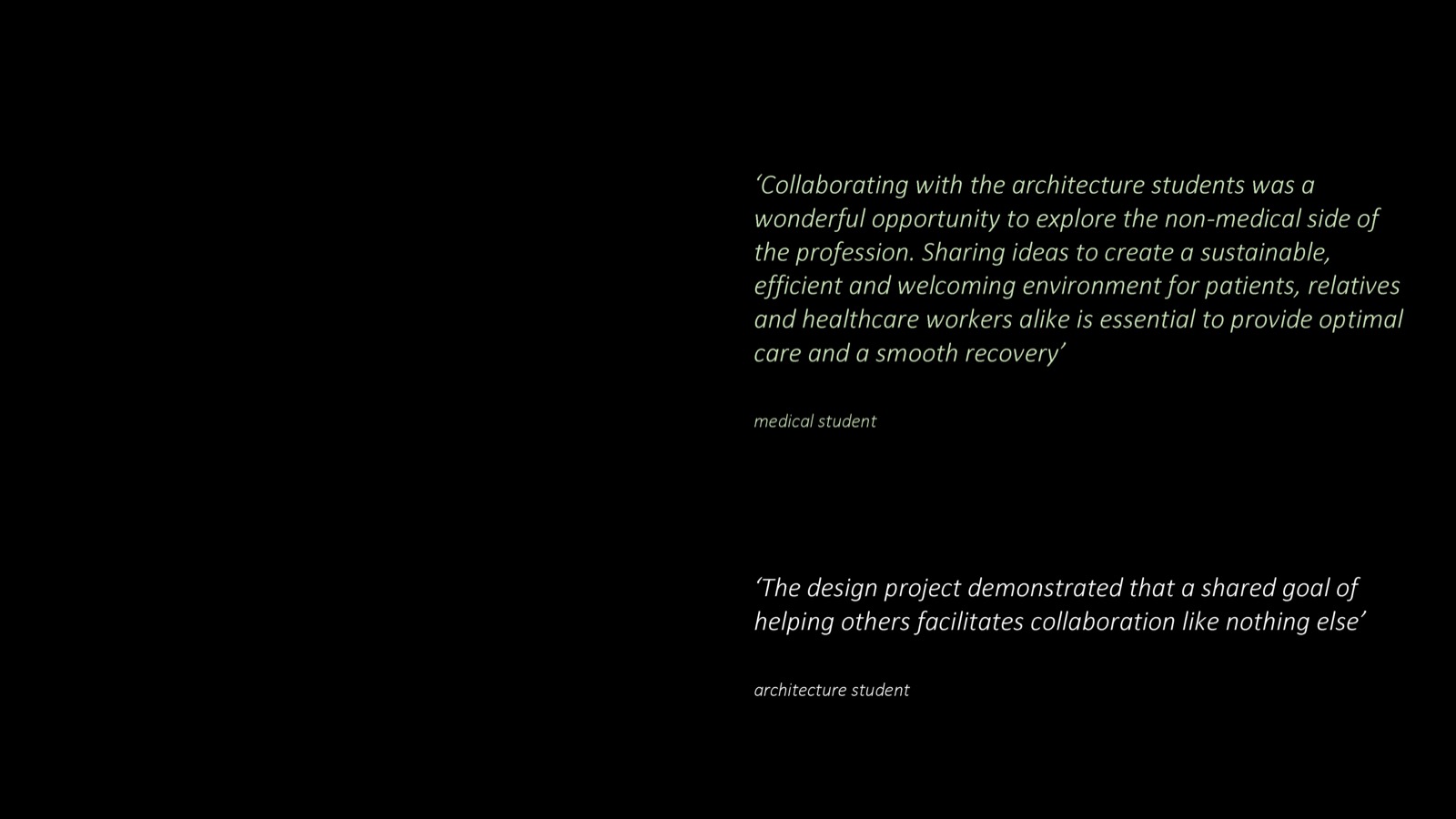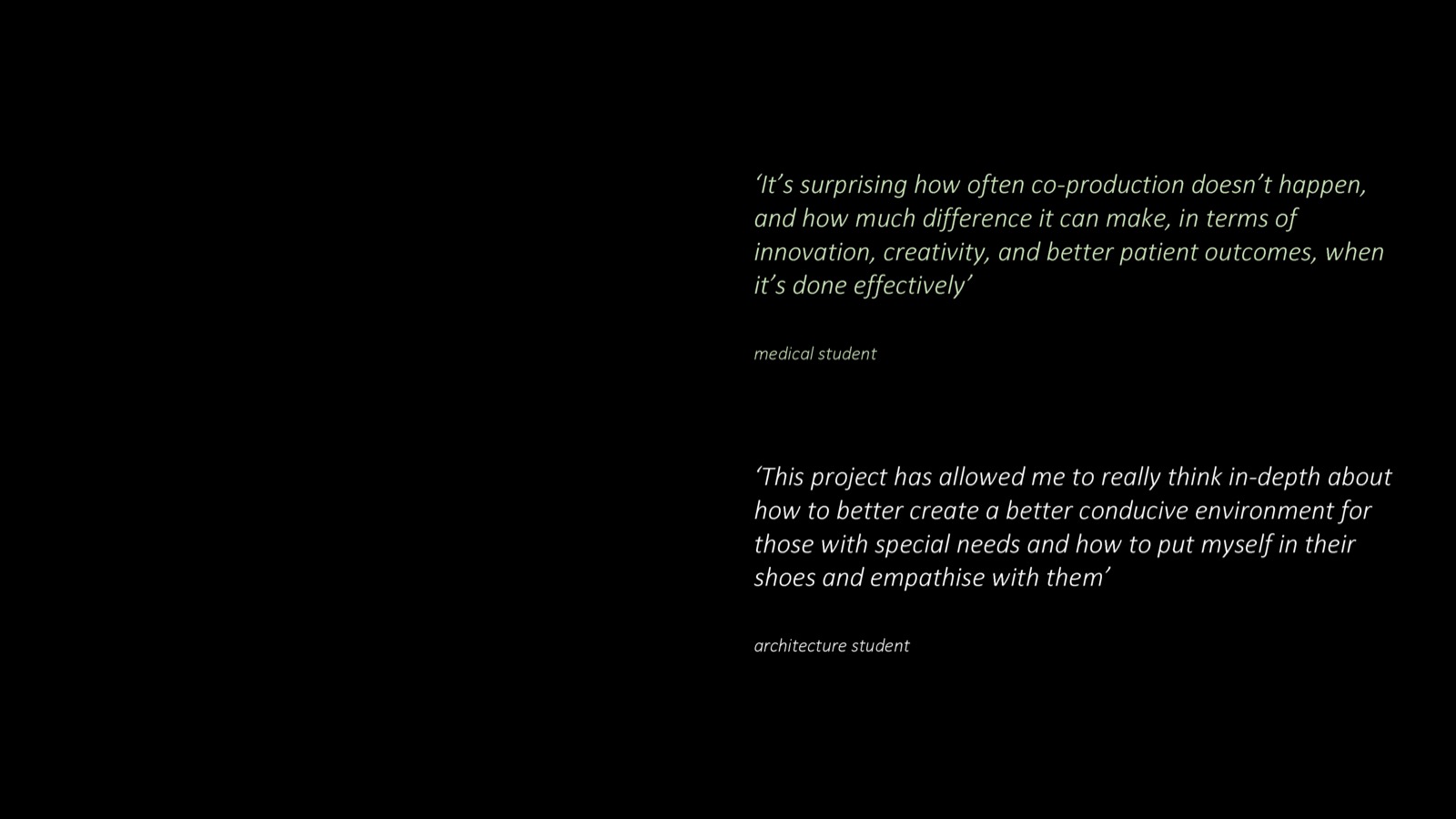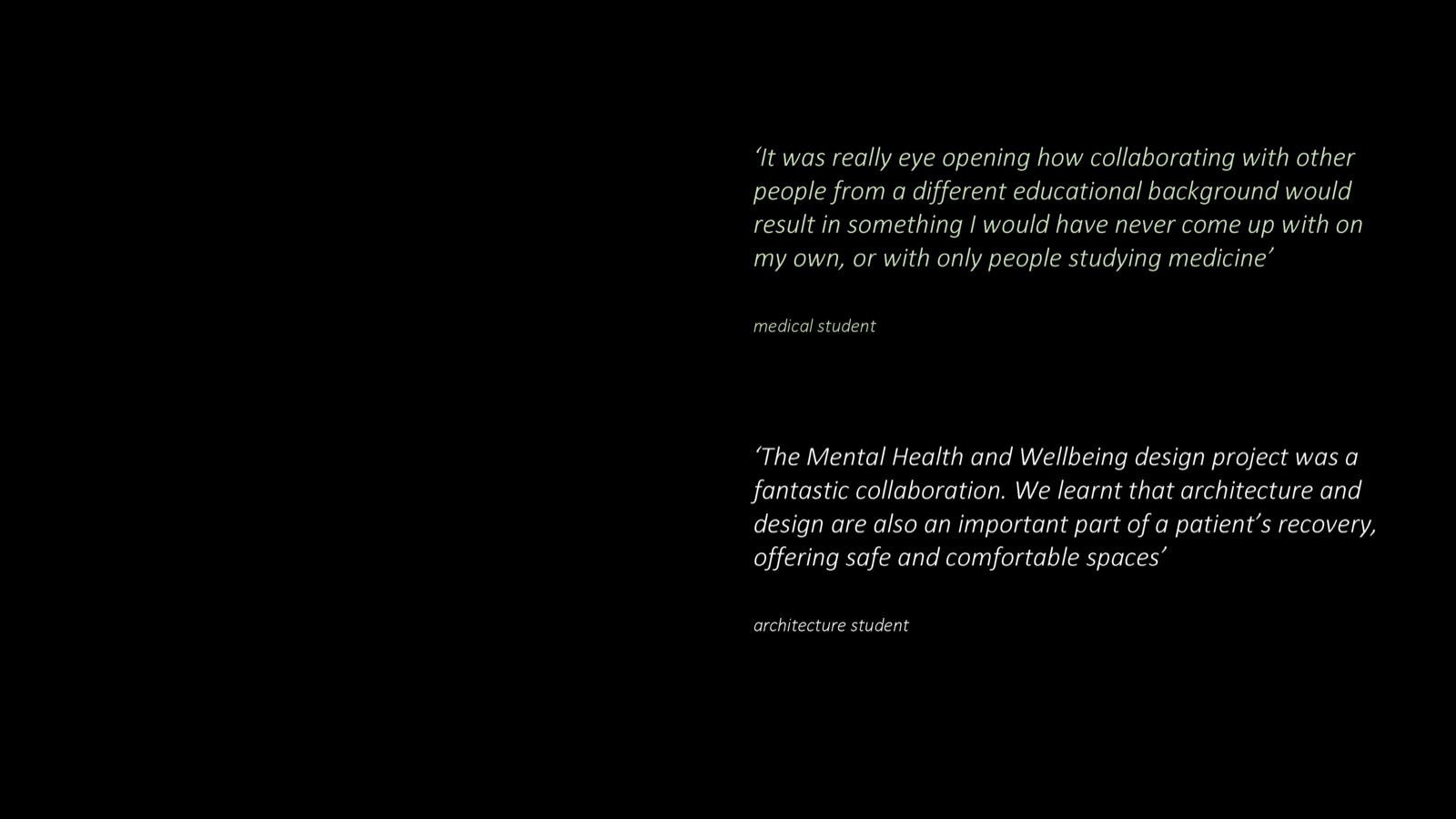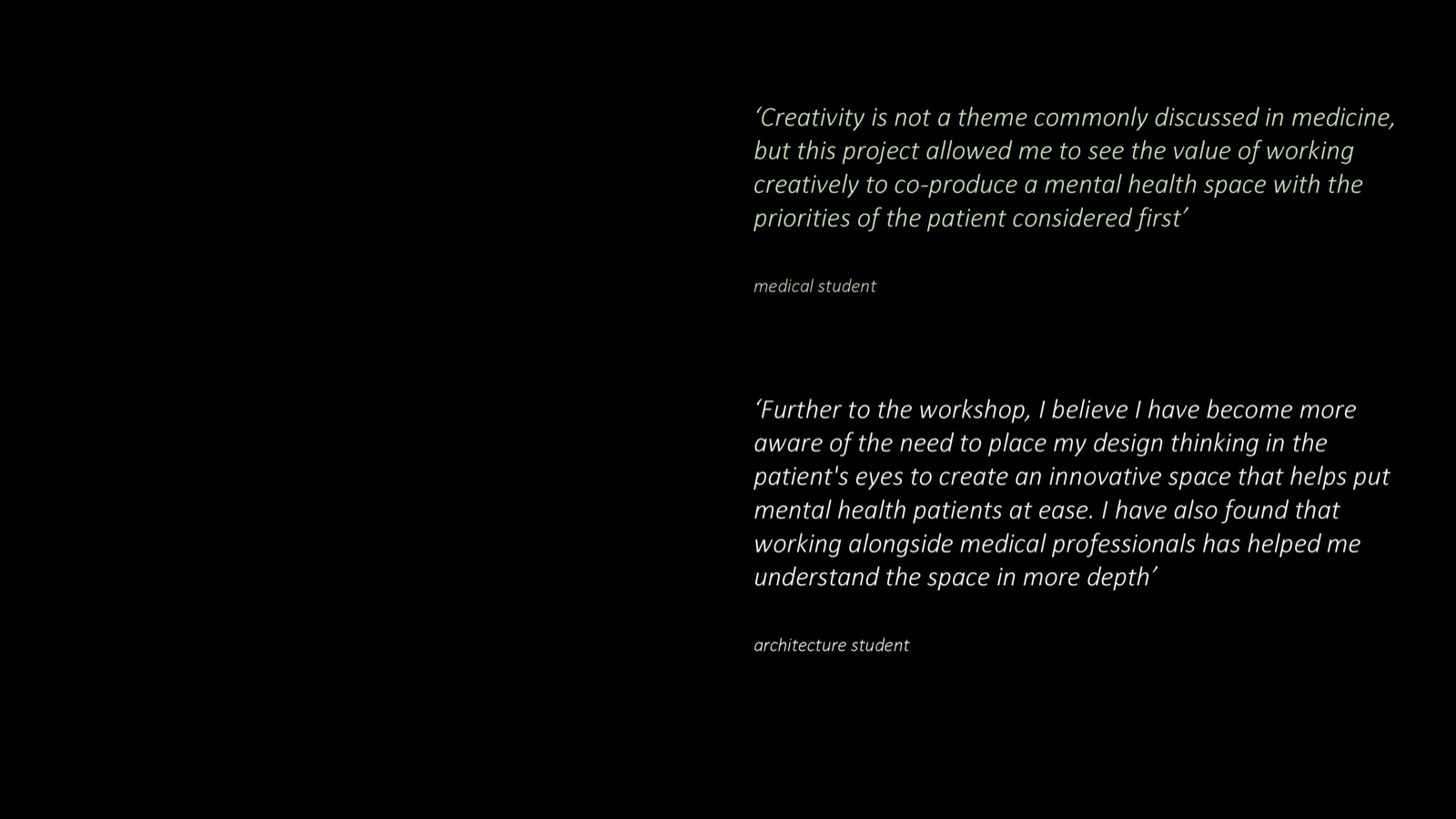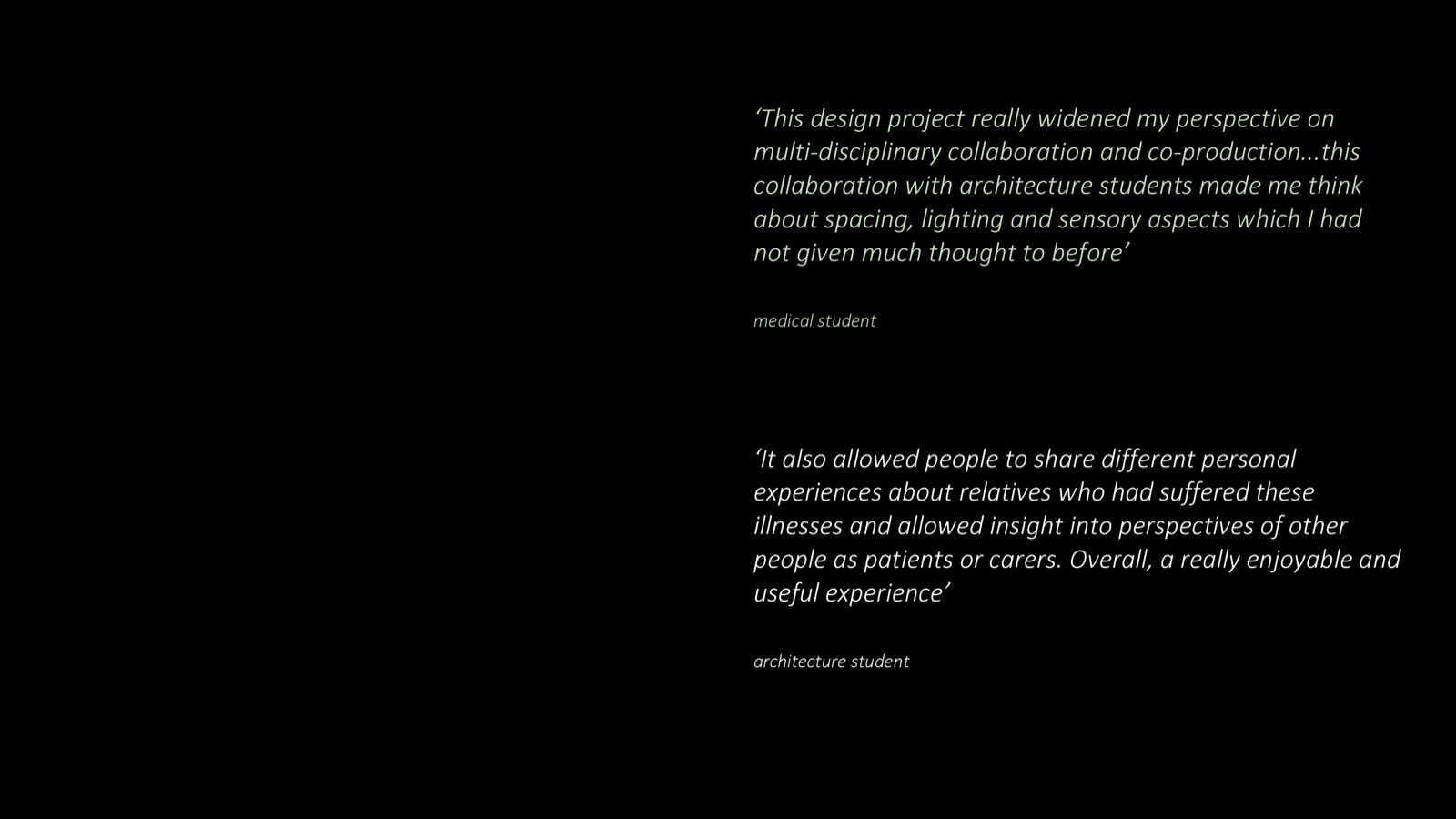Co-Production 2020-2021 Beyond Studio
Mental Health, Design and Wellbeing; A Co-design Workshop in two parts
Learning to work collaboratively for health, was a unique cross-disciplinary partnership between the Medical School at Imperial College London and the School of Architecture and Cities at the University of Westminster, that explored the relationship between design, mental health and wellbeing. The collaboration included six courses; four under-graduate and two post-graduate, with over 650 students from across medicine, architecture, interior architecture and architectural technology, as well as 40+ members of staff.
Three years in the planning, this ambitious and innovative project involved two one-day co-design workshops, during which 64 cross-disciplinary groups of students worked on four defined mental health conditions to propose innovative solutions for the design of four existing NHS sites.
Co-design, co-creation, co-production are all terms used to describe an open design process that enables a wide range of ‘stakeholders’ to make a creative contribution in the formulation and solution to a problem. As a pedagogy, co-design offers an immersive and experiential learning approach while challenging the traditional structures of designer-client, expert-user relationships by giving other stakeholders a voice. Alongside the acquisition of knowledge, skills and competencies, the workshops were innovative in the way they asked participants to work collaboratively while considering more personal qualities such as ethics, empathy and duty of care, as well as the language and methods of communication they shared.
Student tasks were designed to take participants from both disciplines out of their comfort zone and included; creating word clouds on the meaning of co-production, mapping out emotional responses onto selected sites, and representations of what an ideal mental healthcare space should smell, feel, sound and taste like using modelling clay. The discussions generated by these activities were summarized into a ‘User Brief’ at the end of the first workshop and the creation of a ‘Design Poster’ as a response to the Brief at the close of the second. Both days included key note speakers, interviews with clinicians, patients, carers and other service users as well as live Q&A panels offering feedback from architects, clinicians and patient advocates. The final posters were judged by staff, students, and members of the Q&A panels, sixteen groups were shortlisted, and the day concluded with the four winners donating money to mental health charities of their choice.
Ambitious in scale and provocative, Mental Health, Design and Wellbeing; A Co-design Workshop taught us a key part of being an architect or a clinician is the ability to listen with care and work collaboratively.










